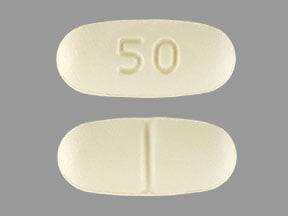
Naltrexone Hcl Coupons & Savings Card – Discount Prices from $26.59
My prescription
Edit
50MG, Naltrexone Hcl (30 Tablets)
Select pharmacy

CVS
$36.65
COUPON PRICE
Albertsons
$26.59
COUPON PRICE
Walmart
$28.98
COUPON PRICE
Walgreens
$43.03
COUPON PRICENaltrexone Hcl savings card
Show this card to your pharmacist
Albertsons
$26.59
BIN
ID
PCN
GRP
011867
LH3BCC7BB1
HT
LABH001
Powered by
More prescriptions for opioid dependence
More prescriptions for opioid dependence
Naltrexone Hcl Anhydrous (Naltrexone Hcl) dosage forms
Dosage Quantity Price from Per unit 50MG 30 Tablets $28.98 $0.97 50MG 1 Tablet $3.38 $3.38 50MG 20 Tablets $20.16 $1.01 50MG 60 Tablets $55.00 $0.92 50MG 90 Tablets $81.34 $0.90 50MG 100 Tablets $87.46 $0.88 50MG 600 Tablets $393.26 $0.66
| Dosage | Quantity | Price from | Per unit |
|---|---|---|---|
| 50MG | 30 Tablets | $28.98 | $0.97 |
| 50MG | 1 Tablet | $3.38 | $3.38 |
| 50MG | 20 Tablets | $20.16 | $1.01 |
| 50MG | 60 Tablets | $55.00 | $0.92 |
| 50MG | 90 Tablets | $81.34 | $0.90 |
| 50MG | 100 Tablets | $87.46 | $0.88 |
| 50MG | 600 Tablets | $393.26 | $0.66 |
Naltrexone Hcl Warnings
The following safety information outlines key risks and precautions associated with the use of naltrexone (ReVia). It is crucial to understand these warnings and discuss any concerns with your healthcare provider.
Increased Sensitivity to Opioids: After completing naltrexone (ReVia) treatment for opioid use disorder, your body may become more sensitive to opioids. This heightened sensitivity could lead to severe and potentially life-threatening effects if opioids are consumed again, even at previously tolerated doses.
Opioid Withdrawal: Initiating naltrexone (ReVia) while currently using opioids can trigger significant withdrawal symptoms such as nausea, vomiting, sweating, and agitation. These symptoms may appear as soon as five minutes after taking naltrexone (ReVia) and can persist for two days or longer.
Liver Concerns: Although rare, naltrexone (ReVia) might lead to liver damage. It's essential to discuss your medical history with your healthcare provider, especially if you have liver issues. Your doctor may decide to monitor your liver health more closely. Be vigilant for symptoms like fatigue, dark urine, stomach upset, abdominal pain, or jaundice, and seek medical advice immediately if they occur.
Mental Health Risks: There have been reports of depression and suicidal thoughts in individuals taking naltrexone (ReVia). It is uncertain if these mood changes are directly related to the medication. Notify your healthcare provider promptly if you experience mood changes or have thoughts of self-harm. Immediate medical attention is advised for severe depression or suicidal thoughts.
Contraindications: Naltrexone (ReVia) should not be used in the following situations without consulting your healthcare provider, as it may result in serious health complications:
- Concurrent use of opioids for pain management or maintenance therapy (such as methadone or buprenorphine).
- Experiencing active opioid withdrawal.
- A failed naloxone challenge test.
Please ensure you are fully informed and have discussed any potential risks with your healthcare provider before starting naltrexone (ReVia).
Naltrexone Hcl Side Effects
Common side effects:
- Nausea
- Vomiting
- Headaches
- Dizziness
- Anxiety
- Tiredness
- Trouble sleeping
Less common but important to monitor:
- Mild opiate withdrawal symptoms
- Abdominal cramps
- Restlessness
- Joint or muscle pain
- Runny nose
- Dry mouth
- Decreased appetite
- Excessive thirst
- Skin rash
- Depression
- Irritability
- Diarrhea
- Constipation
- Sexual problems
Serious side effects:
- Severe liver disease symptoms
- Very serious allergic reaction
- Rash
- Swelling
- Severe dizziness
- Trouble breathing
Naltrexone Hcl Interactions
Interactions with high risk of serious adverse effects and should be avoided:
- Alfentanil
- Alphaprodine
- Anileridine
- Benzhydrocodone
- Buprenorphine
- Butorphanol
- Codeine
- Diacetylmorphine
- Difenoxin
- Dihydrocodeine
- Diphenoxylate
- Ethylmorphine
- Fentanyl
- Hydrocodone
- Hydromorphone
- Ketobemidone
- Levorphanol
- Meperidine
- Methadone
- Morphine
- MorphineSulfate Liposome
- Nalbuphine
- Nicomorphine
- Opium
- OpiumAlkaloids
- Oxycodone
- Oxymorphone
- Papaveretum
- Paregoric
- Piritramide
- Propoxyphene
- Remifentanil
- Sufentanil
- Tapentadol
- Tilidine
- Tramadol
Interactions with moderate risk that may require dose adjustment, closer monitoring, or timing changes:
- Bremelanotide
- Naldemedine
- Naloxegol
Interactions with low risk that usually do not require a change in therapy:
- Lofexidine
- Yohimbine
